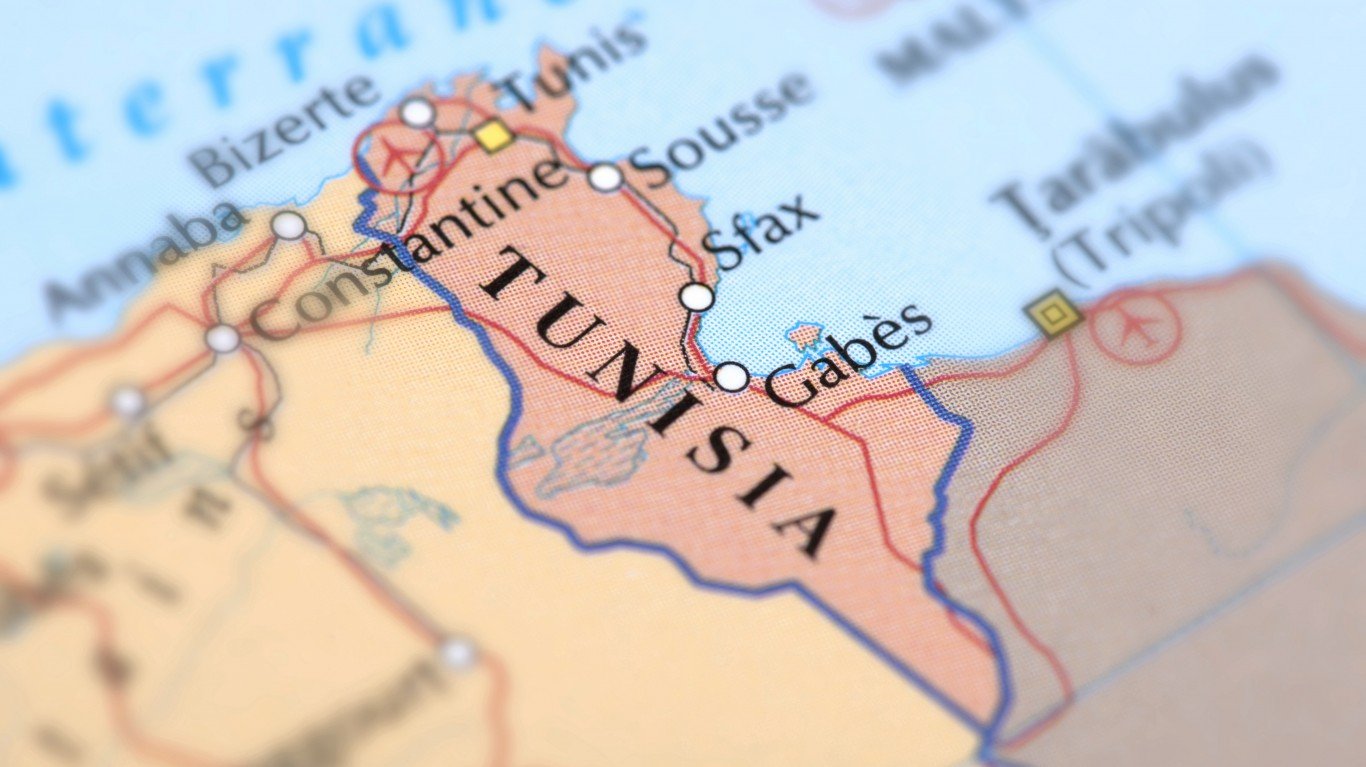

The hottest place in the world right now is the city of Gabes in Tunisia. It is over 121 degrees Fahrenheit (49.4 Celsius) and isn’t expected to cool much soon. At this temperature, the population is on the edge of the heat levels humans can stand.
Gabes sits on the Gulf of Gabes on the eastern edge of the country. The Gulf is part of the Mediterranean Sea. It is also near the center of the country, about equidistant from Algeria and Libya. The northern sections of these two countries routinely have temperatures that range up about 110 degrees, extremely hot, but not usually extremely dangerous.
At 121 degrees, the temperature in the city is above the record highs that were earlier set in June, July and August. Typically, the average high in the city during these months is 90 degrees. Over the course of the three months, historically there is little or no rain.
Gabes is an example of a string of record high temperatures set in India, Pakistan, Kuwait, Iran, Iraq and Saudi Arabia. Among these countries, in the summer months, 100-degree days are no longer extraordinary. Scientists forecast that, over time, these temperatures will only rise.
As temperatures rise above 110 degrees and stay there for several days, heat exhaustion is not unusual. It is characterized by dehydration. Heatstroke, which is much more dangerous, becomes more common. Gabes has been used to study what happens as core body temperature rises above 103 degrees, the primary symptom of heatstroke.
Heatstroke quickly causes a rapid heartbeat, dizziness and sometimes nausea and confusion. In some cases, people can have seizures. In fewer cases, people die.
Gabes rapidly has become a test of how an entire city’s population can be affected by temperatures that are nearly unimaginable. It has a population of 160,000. What happens to health care under these circumstances? What happens to the economy? This year those questions will start to be answered.
Thank you for reading! Have some feedback for us?
Contact the 24/7 Wall St. editorial team.
 24/7 Wall St.
24/7 Wall St.


